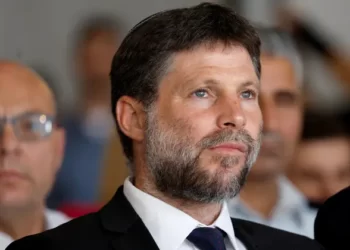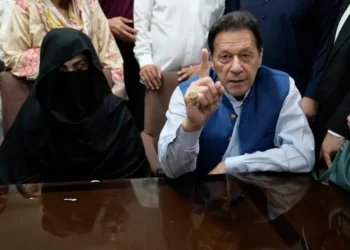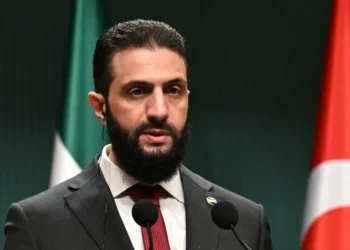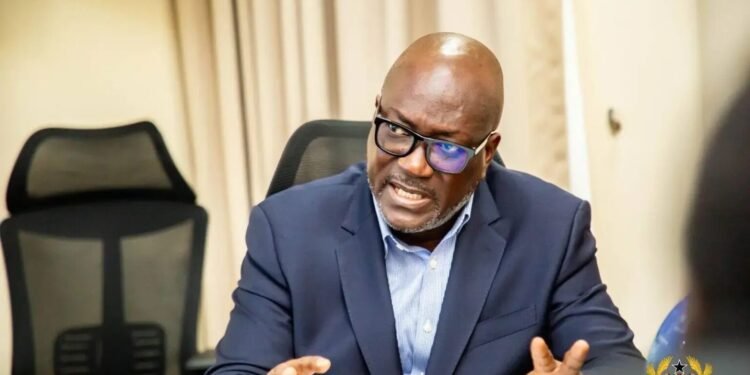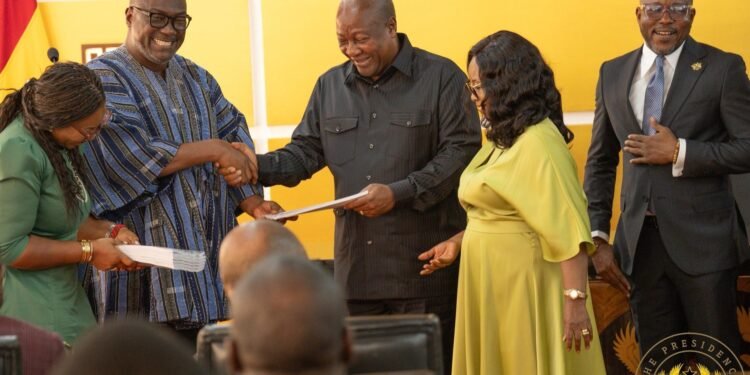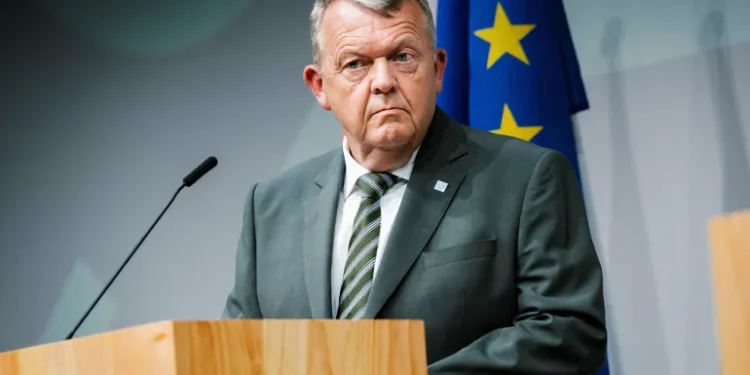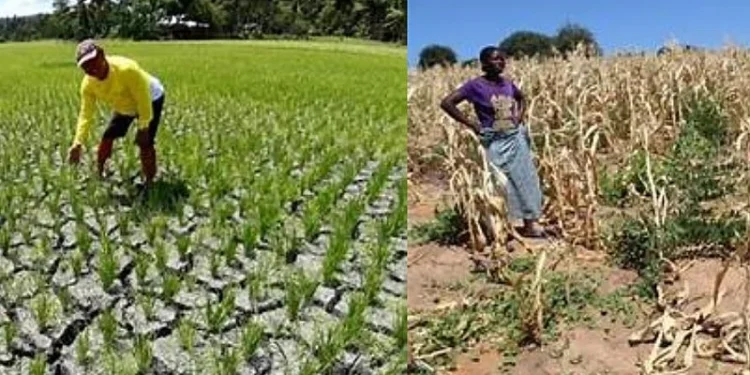Malaysian Prime Minister, Anwar Ibrahim has urged Asia-Pacific leaders to pursue dialogue and cooperation in the region.
This came as he opened the East Asia summit at a time of sharpening rivalry between the United States and China.
The East Asia summit is a regional forum between the Association of Southeast Asian Nations and its key regional partners; Australia, China, India, Japan, New Zealand, South Korea, Russia and the United States, to discuss political, security and economic challenges.
The summit convened after US President Donald Trump left Malaysia earlier Monday for Japan, following his participation at ASEAN’s weekend summit meetings. On Sunday, Trump witnessed the signing of several economic agreements with Malaysia, Thailand, and Cambodia — part of Washington’s push to strengthen trade ties and secure access to critical minerals as it seeks to reduce reliance on China.
Trump also attended a ceremony marking a formal expansion of the Cambodia–Thailand ceasefire that Washington helped broker earlier this year.
Analysts say tensions in the South China Sea, the resilience of regional supply chains and ASEAN’s response to internal crises, particularly Myanmar’s prolonged conflict, would dominate talks in the East Asia summit.
Anwar said in his opening remarks at the East Asia Summit, “Today we must renew our shared purpose, reassert our objectives, promote principles of forward-looking engagement.”
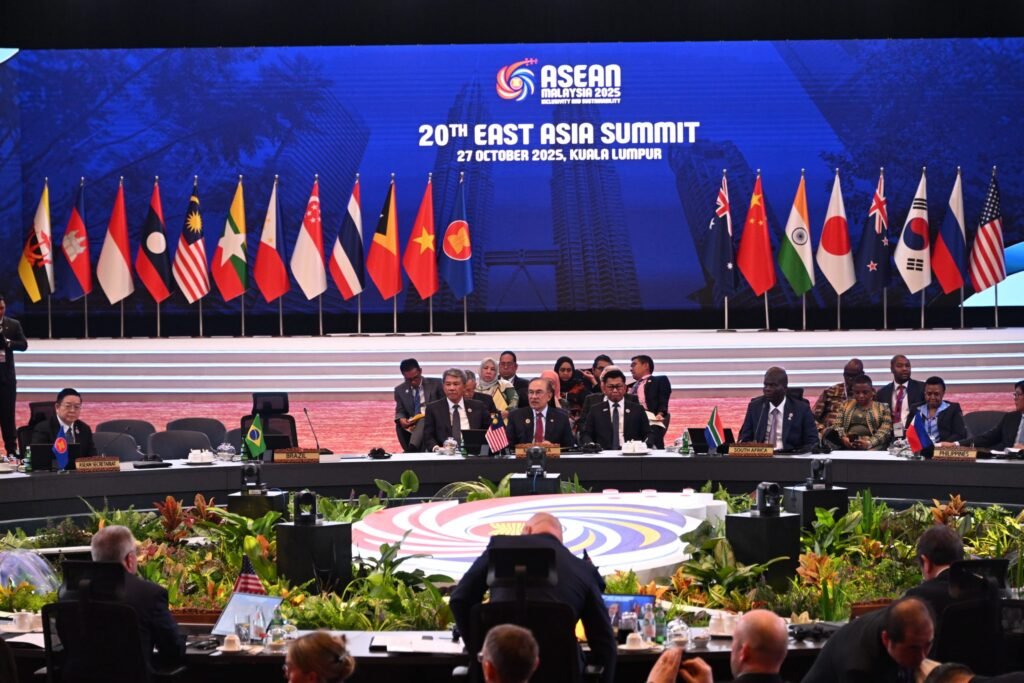
“We continue to advocate for dialogue over coercion…and cooperation over confrontation. We affirm our stand on global peace and security, for multilateralism and international law.”
Anwar Ibrahim
Also in his speech, Anwar commended Trump’s plan to end the Gaza conflict, but said that more must be done to ensure a just and lasting political solution for the Palestinian people.
Prior to the East Asia summit, Anwar met with Trump, conveying his “deep appreciation” for the American leader’s “instrumental role” in advancing a peace agreement between Cambodia and Thailand, as well as a plan for Gaza. The meeting occurred in Malaysia before Trump continued his Asia tour with a departure to Tokyo.
Additionally, the Malaysian Prime Minister voiced concern over the recent surge of ballistic missile launches by North Korea and called for engagement. “Once we call for engagement in all areas from Gaza to Ukraine to Myanmar, we should not preclude engagement with (North Korea),” he said.
On Myanmar, he said that ASEAN is sticking to its 2021 Five-Point Consensus on peace and dialogue to resolve the civil war triggered by Myanmar’s 2021 military takeover. He didn’t touch on Myanmar’s plan for a general election, but said that fighting has subdued and that engagement should continue.
Moreover, Anwar said that territorial tensions in the South China Sea should be resolved within ASEAN and its regional partners, with a “Code of Conduct” being negotiated to govern behavior in the disputed global sea route.
He warned that outside pressure could escalate tensions and urged all parties to respect international law.
RCEP Leaders Hold Summit
Earlier, ASEAN members and five partners; China, Japan, South Korea, Australia, and New Zealand, held a leaders’ summit of the Regional Economic Comprehensive Partnership, the first since they signed a free trade pact in 2020.
The agreement, which covers roughly one-third of global GDP, aims to promote regional economic integration and strengthen supply chain resilience. In a joint statement, the RCEP leaders said that their partnership could bolster the region’s economic resilience in the face of current global uncertainties.
They reaffirmed their commitment to multilateralism and vowed to enhance the implementation of the RCEP agreement and domestic reforms.
Doris Liew, an Economist specializing in Southeast Asian development, opined that the RCEP is “a practical hedge against U.S. tariff shocks.”
Even though their provisions are loose and not seen as strong as some other regional trade blocs, she said that their partnership could help them diversify their trade baskets and reduce exposure to unilateral US actions.
READ ALSO: CDD-Ghana Fellow Pushes for Robust Legal Regime to Tackle Unexplained Wealth






